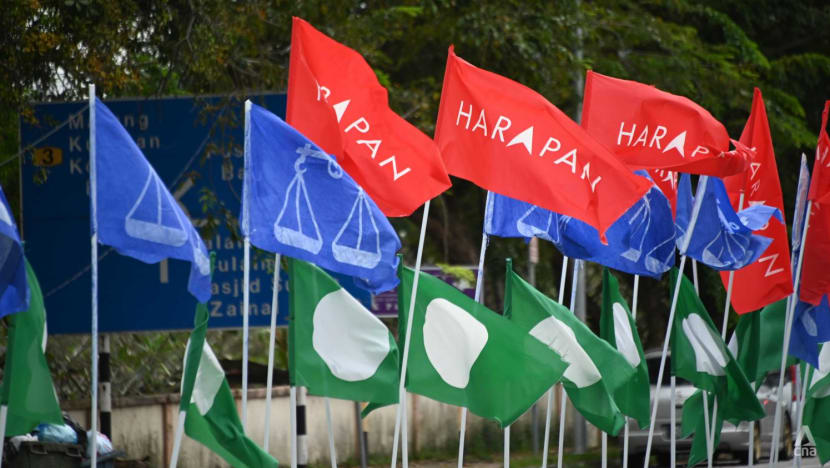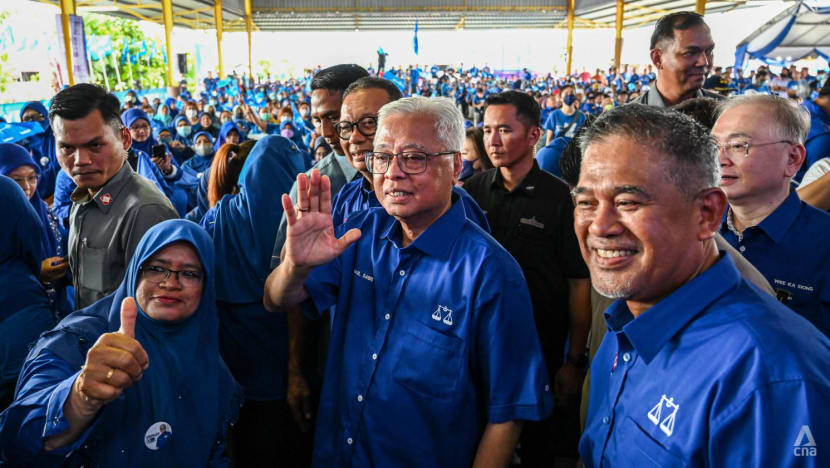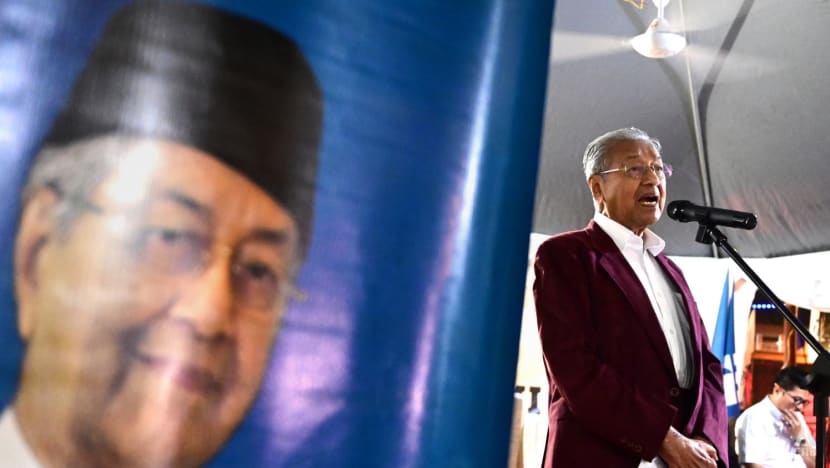Courting the Malay vote: Race-based politics still centrestage in Malaysian politics
With multiple Malay-based parties competing in the Nov 19 general election, experts say the Malay votes will be split, with no coalition likely to win a simple majority.

KUALA LUMPUR: As Malaysia heads to the polls in its 15th General Election on Saturday (Nov 19), the spotlight is on the political parties’ fight for the Malay vote.
It is a crucial battleground for the parties, with the Malay vote accounting for more than 60 per cent of the country’s electorate. There are now several coalitions with wide Malay representation, vying for the valuable vote bank.
Experts say the split in the Malay votes will leave the electoral race wide open, with no one coalition likely to win a simple majority in the polls.
MALAY VOTERS, MALAY LEADERS
Top on the minds of Malay voters in rural heartlands is the issue of Malay supremacy, especially on privileges surrounding race, religion and royalty. Finding a candidate who will represent their interests is therefore a priority for them.
Ms Wan Mahani, who runs a food stall at a night market in Lenggong, Perak, told CNA she still has not decided on her choice of candidate, but said it will have to be a Malay, as Malays make up the majority of residents in her area.
“For me, I prefer a Malay because most of the people here are Malays. If we look at other areas with majority Chinese or Indians, they would pick their own race too,” said the 30-year-old, who is casting her vote for the second time.
Observers said Malay voters will support candidates and parties who are seen as legitimate representatives of their community.
Dr Oh Ei Sun, senior fellow at the Singapore Institute of International Affairs, told CNA that for conservative Malays who form the bulk of the electorate, their go-to choice is the United Malays National Organisation (UMNO).

If they do not wish to support UMNO, then they would lend their support to other Malay-based political parties, such as the Parti Islam Se-Malaysia (PAS) .
“But I think one thing is for sure. They would not vote for Pakatan Harapan (PH) component parties, because I think the less than two years of Pakatan rule demonstrated to the conservative Malays that some of their very much treasured positions and privileges, at least in their minds, were threatened,” said Dr Oh.
The PH had won the previous general election and formed the government in May 2018 to great fanfare, but a variety of reasons soon led to its collapse in early 2020.
Among them, was that PH was seen as incoherent and lacking a strong Malay leadership, with top leaders dismissive of the need to tackle Malay fears and insecurity over their rights and the protection of the Malay agenda under the PH regime.

RACE-BASED POLITICS
The fight for the Malay votes has been intensified in this general election with the presence of multiple Malay-based parties entering the fray.
In August this year, former Prime Minister Mahathir Mohammad announced the formation of Gerakan Tanah Air, a Malay-centric coalition that aims to champion the rights of the Malays.
For the 97-year-old, who is defending his Langkawi seat in the upcoming election, identity politics still remains relevant.
The Pejuang chairman told CNA: "Our main adversary is UMNO. UMNO is a Malay-based party. If you have a multiracial party it will never be able to beat UMNO.”
He added that most of the Malay voters are still thinking about race, and that politicians have to respond to the attitudes of the people accordingly.
Dr Meredith Weiss, political science professor at the University at Albany, said that the support of the Malay base is needed for any coalition seeking legitimacy to lead the next government.
Dr Weiss, who is also a visiting senior fellow at the S Rajaratnam School of International Studies (RSIS), noted that while PH has the edge in Peninsular Malaysia, the coalition expects to get “probably no more than 15 to 20 per cent of the Malay vote”.
“So even though it would be a front runner and will almost certainly be part of the government, it's unlikely to have the legitimacy to lead the government on its own, even if it could come close to a simple majority,” Dr Weiss told CNA’s Asia First.
PH would likely have to form a coalition with a party with a stronger Malay base to make for a stronger governing premise, she added.
SPLITTING THE VOTE
With more Malay-based political parties competing in the upcoming electoral contest, experts said the split in the Malay votes means the results remain uncertain.
Mr Ibrahim Suffian, co-founder of the Malaysia-based Merdeka Center for Opinion Research said: “The emergence of many new Malay parties certainly will fragmentise the Malay electorate further.”
Each of these parties is centred around strong and long-standing personalities, such as former prime ministers Muhyiddin Yassin and Dr Mahathir, opposition leader Anwar Ibrahim and other individuals, and they are trying to build coalitions around themselves.
With the Malay votes split in this manner, observers believe that Chinese and Indian voters, who account for nearly 30 per cent of the electorate, can make a huge difference in the outcome of the election.
“I don't think setting up a new non-racial party would be the solution. Malaysia has tried that and it hasn't really solved things,” said Dr Weiss, referring to the Pakatan Harapan government that won the previous general election.
The Malaysian political landscape still sees multiracial parties needing to be in coalition with race-based parties or at least other multiracial parties, she noted.
















